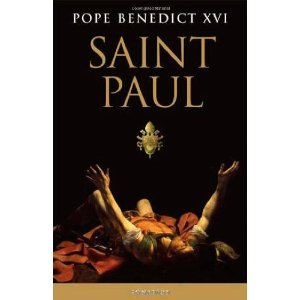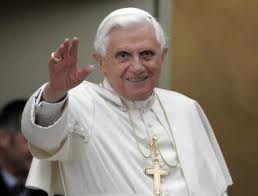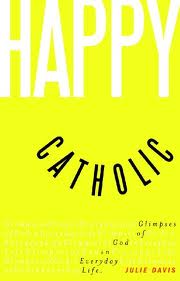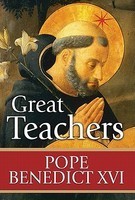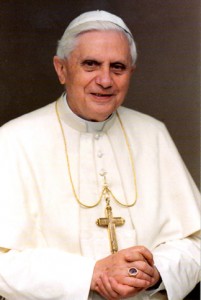In “Parenting Your Adult Child”, Susan Vogt has offers solid advice and counsel on how to address the challenges of spiritually parenting our adult children.: how to respect and nurture the faith that lies deep within each young adult, no matter what it looks like on the surface. Â Susan draws form the virtues to help along the sometimes bumpy path. The virtues she identifies are not the only ones that can help parents deepen their own spirituality, but they are especially relevant to forming new relationships with those you love.
to address the challenges of spiritually parenting our adult children.: how to respect and nurture the faith that lies deep within each young adult, no matter what it looks like on the surface. Â Susan draws form the virtues to help along the sometimes bumpy path. The virtues she identifies are not the only ones that can help parents deepen their own spirituality, but they are especially relevant to forming new relationships with those you love.
You can find more about Susan’s book here.
Tags: Adult Child, catholic, catholic podcast, catholic prayer, cathollc spirituality, children, parenting, st. anthony messenger books, Susan Vogt, virtues
This entry was posted on Thursday, May 12th, 2011 at 4:41 pm
You can follow any responses to this entry through the RSS 2.0 feed.
“Him whom comes to me I will not cast out“
[powerpress feed=”daily-scripture”]
an excerpt from today’s reflection by Don Schwager: 
Why did Jesus call himself the bread of life? The Jews understood that God promised them mana from heaven to sustain them on their journey to the promised land. Bread is the very staple of life. We could not live without food for very long. Bread sustains us. But what is life? Jesus clearly meant something more than mere physical existence. The life Jesus refers to is connected with God, the author of life. Real life is a relationship with the living God, a relationship of trust, love, obedience, peace, and joy. This is what Jesus makes possible for us – a loving relationship with God who created us for love with him. Apart from Jesus no on can enter that kind of life and relationship. Are you satisfied with mere physical existence or do you hunger for the abundant life which Jesus offers?
Jesus makes three claims here. First he offers himself as spiritual food which produces the very life of God within us. Second, he promises unbroken friendship and freedom from the fear of being forsaken or cut off from God. Third, he offers us the hope of sharing in his resurrection. Those who accept Jesus as Lord and Savior will be raised up to immortal life with Jesus when he comes again on the last day. Do you know the joy and hope of the resurrection?
“Lord Jesus Christ, your death brought life and hope where there was once only despair and defeat. Give me the unshakeable hope of everlasting life, the inexpressible joy of knowing your unfailing love, and the unquestioning faith and obedience in doing the will of our Father in heaven.”
for the full reflection visit : Daily Reading and Meditation
Tags: catholic, catholic podcast, catholic prayer, cathollc spirituality, don schwager, gospel of john
This entry was posted on Wednesday, May 11th, 2011 at 12:02 am
You can follow any responses to this entry through the RSS 2.0 feed.
“I am the bread of life; he who comes to me shall not hunger“
[powerpress feed=”daily-scripture”]
an excerpt from today’s reflection by Don Schwager: 
Do you hunger for the bread of life? The Jews had always regarded the mana in the wilderness as the bread of God (Psalm 78:24, Exodus 16:15). There was a strong Rabbinic belief that when the Messiah came he would give manna from heaven. This was the supreme work of Moses. Now the Jewish leaders were demanding that Jesus produce manna from heaven as proof to his claim to be the Messiah. Jesus responds by telling them that it was not Moses who gave the manna, but God. And the manna given to Moses and the people was not the real bread from heaven, but only a symbol of the bread to come.
Jesus then makes the claim which only God can make: I am the bread of life. The bread which Jesus offers is none else than the very life of God. This is the true bread which can truly satisfy the hunger in our hearts. The manna from heaven prefigured the superabundance of the unique bread of the Eucharist or Lord’s Supper which Jesus gave to his disciples on the eve of his sacrifice. The manna in the wilderness sustained the Israelites on their journey to the Promised Land. It could not produce eternal life for the Israelites. The bread which Jesus offers his disciples sustains us not only on our journey to the heavenly paradise, it gives us the abundant supernatural life of God which sustains us both now and for all eternity. When we receive from the Lord’s table we unite ourselves to Jesus Christ, who makes us sharers in his body and blood and partakers of his divine life. Ignatius of Antioch (35-107 A.D.) calls it the “one bread that provides the medicine of immortality, the antidote for death, and the food that makes us live for ever in Jesus Christ” (Ad Eph. 20,2). This supernatural food is healing for both body and soul and strength for our journey heavenward. Do you hunger for God and for the food which produces everlasting life?
“Lord Jesus Christ, you are the bread of life. You alone can satisfy the hunger in my heart. May I always find in you, the true bread from heaven, the source of life and nourishment I need to sustain me on my journey to the promised land of heaven.”
for the full reflection visit : Daily Reading and Meditation
Tags: catholic, catholic podcast, catholic prayer, cathollc spirituality, don schwager, gospel of john, jesus christ, manna from heaven
This entry was posted on Tuesday, May 10th, 2011 at 12:01 am
You can follow any responses to this entry through the RSS 2.0 feed.
Part 2…It just gets better when discussing our Holy Father’s teachings with Mark Brumley! It’s hard to find an equal to our Holy Father when you combine his gifts and talents as a theologian and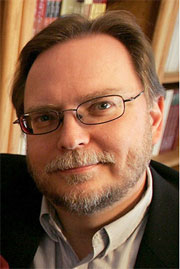 biblical scholar! As  a profound teacher and spiritual leader,  Pope Benedict XVI, through his Wednesday audience catechesis,  brings us the life and  legacy of St. Paul.  Mark Brumley joins us once again to discuss the richness of this work and offers us insights on this extraordinary saint.  Warning: Mark will inspire you to race out and pick up a copy (you’ll be so glad you did).
biblical scholar! As  a profound teacher and spiritual leader,  Pope Benedict XVI, through his Wednesday audience catechesis,  brings us the life and  legacy of St. Paul.  Mark Brumley joins us once again to discuss the richness of this work and offers us insights on this extraordinary saint.  Warning: Mark will inspire you to race out and pick up a copy (you’ll be so glad you did).
[powerpress]
Check out more on the book here
Tags: catholic, catholic podcast, catholic prayer, cathollc spirituality, mark brumley, pope benedict xvi
This entry was posted on Monday, May 9th, 2011 at 10:08 am
You can follow any responses to this entry through the RSS 2.0 feed.
Part 1…It’s hard to find an equal to our Holy Father when you combine his gifts and talents as a theologian and biblical scholar! As  a profound teacher and spiritual leader,  Pope Benedict XVI, through his Wednesday audience catechesis,  brings us the life and  legacy of St. Paul.  Mark Brumley joins us once again to discuss the richness of this work and offers us insights on this extraordinary saint.  Warning: Mark will inspire you to race out and pick up a copy (you’ll be so glad you did).
biblical scholar! As  a profound teacher and spiritual leader,  Pope Benedict XVI, through his Wednesday audience catechesis,  brings us the life and  legacy of St. Paul.  Mark Brumley joins us once again to discuss the richness of this work and offers us insights on this extraordinary saint.  Warning: Mark will inspire you to race out and pick up a copy (you’ll be so glad you did).
[powerpress]
Check out more on the book here
Tags: biblical scholar, catholic, catholic podcast, catholic prayer, cathollc spirituality, mark brumley, pope benedict xvi
This entry was posted on Monday, May 9th, 2011 at 9:08 am
You can follow any responses to this entry through the RSS 2.0 feed.
Episode 9- Regnum Novum: Bringing forth the New Evangelization through Catholic Social Teaching with Omar Guiterrez – Value 5 The Common Good, Universal Destination of Goods, Subsidiarity, Participation, Solidarity part 3
– Value 5 The Common Good, Universal Destination of Goods, Subsidiarity, Participation, Solidarity part 3
[powerpress]
These are the five principles laid out in the Compendium of the Social Doctrine of the Church. If we understand these principles, then the work of the Revolution can begin. We are made now for a New Kingdom with Christ as our King in all things. Let us discover this place together, and make the devil cringe and know the suffering of defeat. “Love”
Discerning Hearts is blessed to present Omar F. A. Guiterrez, M.A. , Special Assistant to Archbishop George Lucas of the Archdiocese of Omaha, in a groundbreaking series which breaks open the heart of Catholic Social Doctrine.
We encourage you to visit “Regnum Novum – A New Kingdom: A Revolution” Omar Guiterrez’s blog site
 We live at a very special time. The confluence of many things has brought forth the clear need to be able to articulate the Social Teaching of the Catholic Church in a way that is accessible and applicable. This is not to be an effort where high-minded theories are to be bandied about. Rather, this is a time of opportunity wherein we can apply the Social Doctrine to the concrete so as to bring about a New Kingdom, a Revolution. – Omar G. from Regnum Novum
We live at a very special time. The confluence of many things has brought forth the clear need to be able to articulate the Social Teaching of the Catholic Church in a way that is accessible and applicable. This is not to be an effort where high-minded theories are to be bandied about. Rather, this is a time of opportunity wherein we can apply the Social Doctrine to the concrete so as to bring about a New Kingdom, a Revolution. – Omar G. from Regnum Novum
From episode 9… Point 5: The Common Good, Universal Destination of Goods, Subsidiarity, Participation, Solidarity
These are the five principles laid out in the Compendium of the Social Doctrine of the Church. If we understand these principles, then the work of the Revolution can begin. We are made now for a New Kingdom with Christ as our King in all things. Let us discover this place together, and make the devil cringe and know the suffering of defeat.
In this episode we focus on “Subsidiarity”.
Also visit Omar’s “Discerning Hearts” page Catholic Social Teaching 101
Tags: archdiocese of omaha, catholic, catholic podcast, catholic prayer, catholic social doctrine, cathollc spirituality, compendium of the social doctrine of the church, new evangelization, social teaching of the catholic church, Subsidiarity
This entry was posted on Monday, May 9th, 2011 at 12:07 am
You can follow any responses to this entry through the RSS 2.0 feed.
“Doing the works of God“
[powerpress feed=”daily-scripture”]
an excerpt from today’s reflection by Don Schwager: 
What do you most hunger for – wealth, peace, health, love, the good life? Jesus addressed this issue with those who sought him after the miracle of the multiplication of the loaves. Were they simply hungry for things which satisfy the body or for that which satisfies the heart and soul? Jesus echoes the question posed by the prophet Isaiah: “Why do you spend your money for that which is not bread, and your labor for that which does not satisfy” (Isaiah 55:2)? There are two kinds of hunger – physical and spiritual. Only God can satisfy the hunger in our heart and soul – the hunger for truth, for life, and for love.
Jesus also spoke about the works of God and what we must do to be doing the works of God, namely to believe in God’s Son whom he has sent into the world. Jesus offers a new relationship with God which issues in a new kind of life: A life of love and service, and the forgiveness of others which corresponds to God’s mercy and kindness; a life of holiness and purity which corresponds to God’s holiness; and a life of submission and trust which corresponds to the wisdom of God. This is the work which Jesus directs us to and enables us to perform in the power of the Holy Spirit. Do you hunger for the bread which comes down from heaven and thirst for the words of everlasting life?
“Lord Jesus, you alone can satisfy the deepest longing and hunger in our hearts. May I always hunger for the imperishable bread, that I may be satisfied in you alone as the True Bread of Heaven. Nourish and strengthen me that I may serve you with great joy, generosity, and zeal all the days of my life”
for the full reflection visit : Daily Reading and Meditation
Tags: catholic, catholic podcast, catholic prayer, cathollc spirituality, don schwager, gospel of john
This entry was posted on Monday, May 9th, 2011 at 12:06 am
You can follow any responses to this entry through the RSS 2.0 feed.
What a joy to talk with Julie Davis, not just “a” happy Catholic, but “the” Happy Catholic!  Julie is the creator of one of the most interesting sites in the blogosphere. Â Her insights, musings and all around thought-filled ponderings on everything from Alice Cooper to St. John Vianney make her must reading for anyone living in today’s culture…pop or otherwise. Â Julie has taken some of the best from her blog, along with a little more, and complied it in “Happy Catholic: Glimpses of God in Everyday Life”.
Julie is the creator of one of the most interesting sites in the blogosphere. Â Her insights, musings and all around thought-filled ponderings on everything from Alice Cooper to St. John Vianney make her must reading for anyone living in today’s culture…pop or otherwise. Â Julie has taken some of the best from her blog, along with a little more, and complied it in “Happy Catholic: Glimpses of God in Everyday Life”.
Check out Julie’s book here
Be sure to visit Julie’s blog  “Happy Catholic”
[powerpress]
Tags: Alice Cooper, catholic, catholic podcast, catholic prayer, cathollc spirituality, happy catholic, Happy Catholic Julie, John Vianney, joy, julie davis, servant books
This entry was posted on Friday, May 6th, 2011 at 10:25 am
You can follow any responses to this entry through the RSS 2.0 feed.
“He who believes in the Son has eternal life”
[powerpress feed=”daily-scripture”]
an excerpt from today’s reflection by Don Schwager: 
Jesus makes a claim only God can make: He is the true bread of heaven that can satisfy the deepest hunger we experience. The sign of the multiplication of the loaves when the Lord says the blessing, breaks and distributes through his disciples prefigures the superabundance of the unique bread of his Eucharist or Lord’s Supper. When we receive from the Lord’s table we unite ourselves to Jesus Christ, who makes us sharers in his body and blood. Ignatius of Antioch (35-107 A.D.) calls it the “one bread that provides the medicine of immortality, the antidote for death, and the food that makes us live for ever in Jesus Christ” (Ad Eph. 20,2). This supernatural food is healing for both body and soul and strength for our journey heavenward. When you approach the Table of the Lord, what do you expect to receive? Healing, pardon, comfort, and rest for your soul? The Lord has much more for us, more than we can ask or imagine. The principal fruit of receiving the Eucharist is an intimate union with Christ. As bodily nourishment restores lost strength, so the Eucharist strengthens us in charity and enables us to break with disordered attachments to creatures and to be more firmly rooted in the love of Christ. Do you hunger for the “bread of life”?
The feeding of the five thousand shows the remarkable generosity of God and his great kindness towards us. When God gives, he gives abundantly. He gives more than we need for ourselves that we may have something to share with others, especially those who lack what they need. God takes the little we have and multiplies it for the good of others. Do you trust in God’s provision for you and do you share freely with others, especially those who lack?
“Lord Jesus, you satisfy the deepest longing of our heart and you feed us with the finest of wheat (Psalm 81:16). Fill me with gratitude and give me a generous heart that I may freely share with others what you have given to me.”
for the full reflection visit : Daily Reading and Meditation
Tags: catholic, catholic podcast, catholic prayer, cathollc spirituality, don schwager, gospel of john
This entry was posted on Friday, May 6th, 2011 at 12:04 am
You can follow any responses to this entry through the RSS 2.0 feed.
“He who believes in the Son has eternal life”
[powerpress feed=”daily-scripture”]
an excerpt from today’s reflection by Don Schwager: 
God’s truth has consequences and he gives us the freedom to choose how we will respond. The choice he gives us has eternal consequences – everlasting life or everlasting death. God challenged his people in the Old Covenant: “See I have set before you this day life and good, death and evil. …I call heaven and earth to witness against you this day, that I have set before you life and death, blessing and curse; therefore choose life, that you may live, loving the Lord your God, obeying his voice, and cleaving to him” (Deuteronomy 30:15-20). And he issues the same challenge to the people of the New Covenant today. Do you weigh the consequences of your choices? Do they lead you towards life or towards death? If you choose to obey God’s voice and to do his will, then you will know and experience that life which comes from God himself. If you choose to follow your own way apart from God and his will, then you choose for death – a spiritual death which poisons and then kills the soul until there is nothing left but an empty person devoid of love, truth, goodness, purity, peace, and joy. Do your choices lead you towards God or away from God?
“Lord Jesus Christ, let your Holy Spirit fill me and transform my heart and mind that I may choose life – abundant life in you and with you. And give me the courage and strength to always discern good from evil and to reject everything that is false and contrary to your holy will.”
for the full reflection visit : Daily Reading and Meditation
Tags: catholic, catholic podcast, catholic prayer, cathollc spirituality
This entry was posted on Thursday, May 5th, 2011 at 12:35 am
You can follow any responses to this entry through the RSS 2.0 feed.
“God so loved the world that he gave us his only Son”
[powerpress feed=”daily-scripture”]
an excerpt from today’s reflection by Don Schwager: 
Do you know the love which surpasses all else? A true lover holds nothing back but gives the best that can be offered, even everything in their possession for the beloved. God proved his love for us by giving us the best he had to offer – his only begotten Son who freely gave himself as an offering to God for our sake and as the atoning sacrifice for our sin and the sin of the world. Abraham’s willing sacrifice of his only son, Isaac prefigures the perfect offering and sacrifice of God’s beloved Son, our Lord Jesus Christ. This passage in the gospel of John tells us of the great breadth and width of God’s love. Not an excluding love for just a few or for a single nation, but a redemptive love that embraces the whole world, and a personal love for each and every individual whom God has created. God is a loving Father who cannot rest until his wandering children have returned home to him. Saint Augustine says, God loves each one of us as if there were only one of us to love. God gives us the freedom to choose whom and what we will love.
Jesus shows us the paradox of love and judgment. We can love the darkness of sin and unbelief or we can love the light of God’s truth, beauty, and goodness. If our love is guided by what is true, and good and beautiful then we will choose for God and love him above all else. What we love shows what we prefer. Do you love God above all else? Does he take first place in your life, in your thoughts, and actions?
“Lord Jesus Christ, your love is better than life itself. May your love consume and transform my life that I may desire you above all else. Help me to love what you love, to desire what you desire, and to reject what you reject”.
for the full reflection visit : Daily Reading and Meditation
Tags: catholic, catholic podcast, catholic prayer, cathollc spirituality, don schwager, gospel of john
This entry was posted on Wednesday, May 4th, 2011 at 1:34 pm
You can follow any responses to this entry through the RSS 2.0 feed.
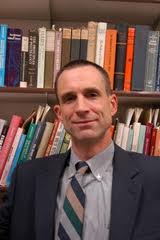 Episode 1 – What is Christian Apologetics? Who was St. Thomas Aquinas, his life, his times, and his contribution. What is “theology”? What is the “Summa”?
Episode 1 – What is Christian Apologetics? Who was St. Thomas Aquinas, his life, his times, and his contribution. What is “theology”? What is the “Summa”?
[powerpress]
 Question 1. article 1Â The nature and extent of sacred doctrine
Question 1. article 1Â The nature and extent of sacred doctrine
Whether, besides philosophy, any further doctrine is required?
Objection 1: It seems that, besides philosophical science, we have no need of any further knowledge. For man should not seek to know what is above reason: “Seek not the things that are too high for thee” (Ecclus. 3:22). But whatever is not above reason is fully treated of in philosophical science. Therefore any other knowledge besides philosophical science is superfluous.
Objection 2: Further, knowledge can be concerned only with being, for nothing can be known, save what is true; and all that is, is true. But everything that is, is treated of in philosophical science—even God Himself; so that there is a part of philosophy called theology, or the divine science, as Aristotle has proved (Metaph. vi). Therefore, besides philosophical science, there is no need of any further knowledge.
On the contrary, It is written (2 Tim. 3:16): “All Scripture, inspired of God is profitable to teach, to reprove, to correct, to instruct in justice.” Now Scripture, inspired of God, is no part of philosophical science, which has been built up by human reason. Therefore it is useful that besides philosophical science, there should be other knowledge, i.e. inspired of God.
I answer that, It was necessary for man’s salvation that there should be a knowledge revealed by God besides philosophical science built up by human reason. Firstly, indeed, because man is directed to God, as to an end that surpasses the grasp of his reason: “The eye hath not seen, O God, besides Thee, what things Thou hast prepared for them that wait for Thee” (Is. 66:4). But the end must first be known by men who are to direct their thoughts and actions to the end. Hence it was necessary for the salvation of man that certain truths which exceed human reason should be made known to him by divine revelation. Even as regards those truths about God which human reason could have discovered, it was necessary that man should be taught by a divine revelation; because the truth about God such as reason could discover, would only be known by a few, and that after a long time, and with the admixture of many errors. Whereas man’s whole salvation, which is in God, depends upon the knowledge of this truth. Therefore, in order that the salvation of men might be brought about more fitly and more surely, it was necessary that they should be taught divine truths by divine revelation. It was therefore necessary that besides philosophical science built up by reason, there should be a sacred science learned through revelation.
Reply to Objection 1: Although those things which are beyond man’s knowledge may not be sought for by man through his reason, nevertheless, once they are revealed by God, they must be accepted by faith. Hence the sacred text continues, “For many things are shown to thee above the understanding of man” (Ecclus. 3:25). And in this, the sacred science consists.
Reply to Objection 2: Sciences are differentiated according to the various means through which knowledge is obtained. For the astronomer and the physicist both may prove the same conclusion: that the earth, for instance, is round: the astronomer by means of mathematics (i.e. abstracting from matter), but the physicist by means of matter itself. Hence there is no reason why those things which may be learned from philosophical science, so far as they can be known by natural reason, may not also be taught us by another science so far as they fall within revelation. Hence theology included in sacred doctrine differs in kind from that theology which is part of philosophy.
For an online version of St. Thomas Aquinas’ “Summa” click here
“Christian Apologetics with Dr. R. R. Reno” explores numerous facets of faith and reason in the life of the Church and the world. Grounded on the work of giants, such as St. Thomas Aquinas, St. Bonaventure, Blessed John Newman, soon-to-be Blessed John Paul II, G. K. Chesterton, Blaise Paschal and Stephen Barr, Dr. Reno helps us to open our minds to make the journey to our hearts.
R. R. Reno is the editor at First Things: A Journal of Religion, Culture, and Public Life, and Professor of Theology, currently on leave from Creighton University. His theological work has been published in many academic journals. Essays and opinion pieces on religion, public life, contemporary culture, and current events have appeared in Commentary, and the Washington Post. In Fighting the Noonday Devil Reno suggests that putting ourselves at the disposal of what is real is what trains us for true piety. His other recent books include Genesis: Brazos Theological Commentary on the Bible and Sanctified Vision: An Introduction to Early Christian Interpretation of the Bible.
Tags: Blessed John Newman, catholic, catholic podcast, catholic prayer, cathollc spirituality, creighton university, faith, first things, r r reno, summa theologica, thomas aquinas, work
This entry was posted on Wednesday, May 4th, 2011 at 8:25 am
You can follow any responses to this entry through the RSS 2.0 feed.
Gregory Erlandson, president and publisher of the Our Sunday Visitor Publishing, joins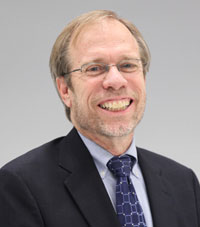 us once again to discuss the tremendous work of our Holy Father, Pope Benedict and his reflections and teachings on “The Great Teachers”. Greg offers fantastic insight on the teachings of Pope Benedict and the need we have for it in the Church today.
us once again to discuss the tremendous work of our Holy Father, Pope Benedict and his reflections and teachings on “The Great Teachers”. Greg offers fantastic insight on the teachings of Pope Benedict and the need we have for it in the Church today.
[powerpress]
“To renew the Church in every age, God raises up saints, who themselves have been renewed by God and are in constant contact with God.” Pope Benedict XVI
Discover the greatest teachers of the Faith as Pope Benedict XVI highlights their essential role during a time of scandal and strife in the Church.
Find the book here
–Hugh and Richard of Saint-Victor
–William of Saint-Thierry
–Rupert of Dutz
–John of Salisbury
–Peter Lombard
–St. Francis of Assisi
–St. Dominic Guzman
–St. Anthony of Padua
–St. Bonaventure
–St. Albert the Great
–St. Thomas Aquinas
–John Duns Scotus
Tags: catholic, catholic podcast, catholic prayer, cathollc spirituality
This entry was posted on Tuesday, May 3rd, 2011 at 1:40 pm
You can follow any responses to this entry through the RSS 2.0 feed.
Philip said to Jesus, “Lord, show us the Father, and we shall be satisfied”
[powerpress feed=”daily-scripture”]
an excerpt from today’s reflection by Don Schwager: 
One of the greatest truths of the Christian faith is that we can know the living God. Our knowledge of God is not simply limited to knowing something about God, but we can know God personally. The essence of Christianity, and what makes it distinct from Judaism and other religions, is the personal knowledge of God as our Father.
Jesus makes it possible for each of us to personally know God as our Father. To see Jesus is to see what God is like. In Jesus we see the perfect love of God – a God who cares intensely and who yearns over men and women, loving them to the point of laying down his life for them upon the Cross. Jesus is the revelation of God – a God who loves us unconditionally – without reservation, unselfishly – for our sake and not his, and perfectly – without neglecting or forgetting us even for a brief moment. Jesus promises that God the Father will hear our prayers when we pray in his name. That is why Jesus taught his followers to pray with confidence, Our Father who art in heaven ..give us this day our daily bread (Matthew 6:9,11; Luke 11:2-3). Do you pray to your Father in heaven with joy and confidence in his love and care for you?
“Lord Jesus, you fill us with the joy of your saving presence and you give us the hope of everlasting life with God our Father in Heaven. Show me the Father that I may know and glorify him always.”
for the full reflection visit : Daily Reading and Meditation
Tags: catholic, catholic podcast, catholic prayer, cathollc spirituality, don schwager, gospel of john
This entry was posted on Tuesday, May 3rd, 2011 at 8:22 am
You can follow any responses to this entry through the RSS 2.0 feed.
“Burst – A Story of God’s Grace When Life Falls Apart” by Kevin Wells is truly inspirational. 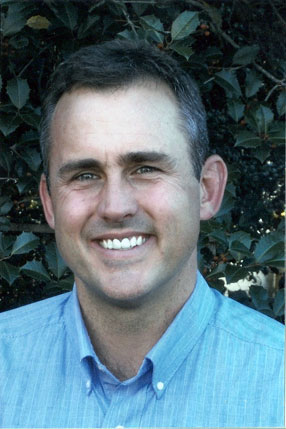 Sharing the traumatic, as well as the heroic moments of life, Kevin Wells helps us to see the grace of God and it’s power to transform our lives. Draw close to God and He’ll draw close to you! Well written, this is a beautiful memoir by a rock solid Catholic man. This is one of those books that just compells you to keep reading. Fantastic!
Sharing the traumatic, as well as the heroic moments of life, Kevin Wells helps us to see the grace of God and it’s power to transform our lives. Draw close to God and He’ll draw close to you! Well written, this is a beautiful memoir by a rock solid Catholic man. This is one of those books that just compells you to keep reading. Fantastic!
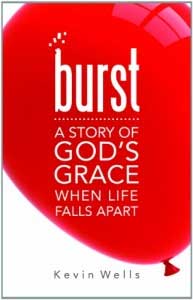 Check out Kevin’s book here
Check out Kevin’s book here
Tags: catholic, catholic podcast, catholic prayer, cathollc spirituality, kevin wells
This entry was posted on Monday, May 2nd, 2011 at 9:07 am
You can follow any responses to this entry through the RSS 2.0 feed.


